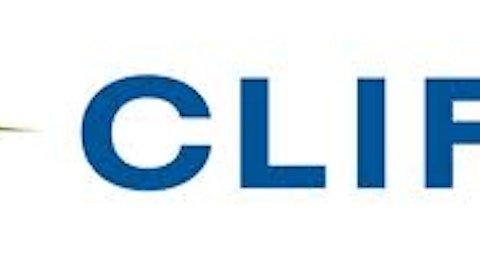According to a Form 4 filed with the SEC, Russ Strobel, who is a member of FirstMerit (NASDAQ:FMER)’s Board of Directors, directly acquired 5,000 shares of stock on April 25th at prices of about $17 per share. This gave him about 9,100 total shares of the $1.9 billion market cap Midwestern bank in his direct holdings- a large increase in percentage terms. We track insider purchases because studies show that stocks bought by insiders slightly outperform the market on average (read our analysis of studies on insider trading). Our explanation for this effect is that it is rational for insiders to diversify their wealth away from the company, and so actually buying the stock should signal confidence in the stock’s prospects. Interestingly, another company officer bought the stock recently and several other insiders reported purchases in early February (see a history of insider purchases at FirstMerit). Consensus insider purchases tend to precede stronger outperformance than single insider purchases.
FirstMerit (NASDAQ:FMER) recently reported its results for the first quarter of 2013. Earnings were down slightly on a q/q basis but still up by about 20% versus a year earlier. Since the beginning of the year, the bank has also completed its acquisition of Citizens Republic Bancorp, and has begun to expand its geographic reach by a bit. This follows a year in which net income was up by 12% compared to 2011, though this increase was primarily due to a smaller provision for loan losses in 2012.
Currently, FirstMerit (NASDAQ:FMER) is valued at a small premium to the book value of its equity with a P/B ratio of 1.1. Its valuation also represents a trailing earnings multiple of 14, which we’d normally consider fairly low although it is not particularly attractive compared to the valuations of many other regional and global banks. Of course, growth numbers have been good and could come down a bit and still make FirstMerit (NASDAQ:FMER) a good value. We’d also note that the stock pays a dividend yield of 4% at current prices and dividend levels, and so may be of interest to income investors. Billionaire Ken Fisher’s Fisher Asset Management trimmed its stake by 6% in the fourth quarter of 2012, but closed the year with 2.9 million shares in its portfolio (find Fisher’s favorite stocks). Dreman Value Management, managed by David Dreman, increased its holdings to a total of 2.1 million shares (check out more stocks Dreman was buying).
Peers for FirstMerit (NASDAQ:FMER) include Fifth Third Bancorp (NASDAQ:FITB), Huntington Bancshares Incorporated (NASDAQ:HBAN), KeyCorp (NYSE:KEY), and PNC Financial Services (NYSE:PNC). All four of these companies are trading at least close to FirstMerit (NASDAQ:FMER) in book value terms, with KeyCorp being the only one to feature a discount to book (its P/B ratio is 0.9). Interestingly, FirstMerit carries a small premium in terms of trailing earnings with the four other banks clustered between 10 and 12 times their trailing earnings. However, business has generally been flat at these companies recently: Fifth Third Bancorp (NASDAQ:FITB), Huntington Bancshares Incorporated (NASDAQ:HBAN), and KeyCorp (NYSE:KEY) all had both their revenue and earnings come in for their most recent quarter within 5% of their levels in the same period in the previous year, with these numbers being lower in some cases. Only PNC Financial Services (NYSE:PNC), the largest of this group by market cap at $36 billion, has done much better with net income rising 26% in Q1 compared to the first quarter of 2012; even there, revenue numbers were more modest.
Still, we think that when the lower earnings multiple is taken into account as well PNC at least is worth researching further. FirstMerit isn’t exactly expensive, and it does have the advantages of strong earnings growth and multiple insider purchases over some of its peers, but we aren’t sure that it’s actually better in value terms than PNC. We do think that the dividend yield is high for a financial, however, and with the company seeming fairly stable and certainly not too overvalued it would be worth a look on that basis.
Disclosure: I own no shares of any stocks mentioned in this article.






